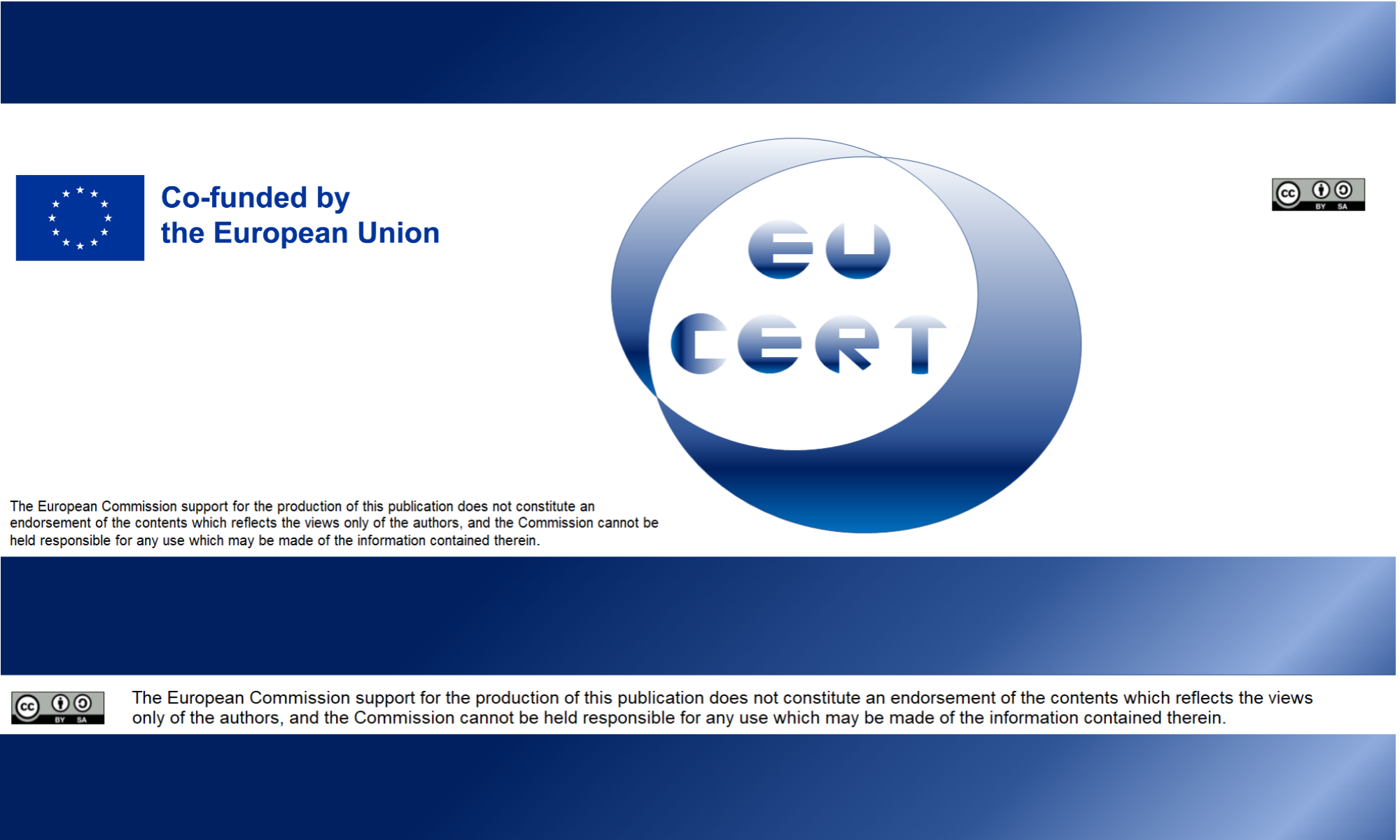🤝 Collaboration is Key! 🤝 EU-CERT is partnering with organizations across Europe to create a network of excellence in adult education. Together, we’re stronger! #EU_CERT #Collaboration
🗓️ Save the Date! 🇭🇷 Join us in Zagreb in December 2023 for an inspiring gathering of minds. Let’s shape the future of adult education together! #EU_CERT #ZagrebMeeting
💡 Innovation in Education!
🚀 EU-CERT is exploring new ways to enhance learning experiences for adults. Stay connected for updates on our innovative projects and initiatives. #EU_CERT #InnovationInEducation
EU-CERT: A Milestone in Accreditation and Certification of Businesses and Courses
The world of lifelong learning and professional development is undergoing a revolution, and the driving force behind it is the ERASMUS+ project EU-CERT – European Certificates and Accreditation for European Projects. This project aims to develop, test, and evaluate European standards for accrediting and certifying projects and educational institutions in the field of adult education. The initial results of this ambitious initiative are highly promising and promise an exciting future for businesses and courses accredited and certified by EU-CERT.
Foundations of EU-CERT
The EU-CERT project is part of the ERASMUS+ program in the field of adult education and has a duration of 28 months. The working language of the project is English, which promotes international collaboration and the exchange of best practices.
In the EU-CERT initiative, a consortium of organizations is working to create an accreditation tool and a detailed accreditation process for ERASMUS+ projects. This process extends not only to the projects themselves but also to their outcomes and outputs, such as courses, modules, curricula, training, software, and much more. The goal of the EU-CERT project is to develop and implement European standards for project accreditation in adult education. This includes creating a stable accreditation structure that can continue to operate sustainably even after the project’s completion.
Visibility and Appreciation of Project Results
A central concern of EU-CERT is to make project results and high-quality outputs more visible and valued. Although measures such as the ERASMUS+ label have taken steps in this direction, they alone cannot guarantee the quality of educational projects. EU-CERT was developed based on a comprehensive needs analysis conducted before the project’s inception.
This analysis provided insights into the existing accreditation and certification structures in adult education related to ERASMUS+. It underscored the need for a formal and systematic process for identifying and assessing the requirements for a certification and accreditation procedure in adult education. Furthermore, it became clear that a PDCA cycle (Plan, Do, Check, Act) alone would not provide a sufficient basis for quality assurance and accreditation in adult education.
The Importance of the Needs Analysis
The needs analysis that preceded EU-CERT was a key piece in the development of this project. It indicated that there was a clear gap in the accreditation and certification of adult education projects, and this gap needed to be addressed. The needs analysis was a formal and thorough examination of existing processes and structures. This helped the EU-CERT consortium develop a sustainable and practical approach to closing this gap.
The Future of EU-CERT
The initial evaluation results of the EU-CERT project are extremely positive and suggest that this project will make a significant contribution to improving the quality and recognition of educational projects in adult education. Businesses and courses accredited and certified by EU-CERT will benefit from increased visibility and appreciation. This will not only enhance the quality of education but also contribute to advancing adult professional development at the European level.
In a time when lifelong learning and professional development are of critical importance, EU-CERT could be the key to promoting quality and excellence in adult education. The development of European standards for accreditation and certification will ensure that educational projects across Europe are conducted at a high standard. The positive evaluation results are a promising start, and the future of EU-CERT looks promising. Businesses and courses relying on EU-CERT can count on successful and recognized professional development
🌟 We’re thrilled to share that our Accreditation Tool has received outstanding evaluations! User-friendly and highly ranked by testers, it’s set to transform the accreditation process. Stay tuned for its launch! 🚀 #EU_CERT #TopRankingAccreditationTool
🌐 Looking for transparency and accessibility in accreditation? Look no further! EU-CERT’s Accreditation Tool website is on the horizon, designed with you in mind. 🌟 #EU_CERT #AccreditationToo
🌟 Discover EU-CERT: Elevating Education Quality Across Europe! 📚 Our mission is to set higher standards in adult education, and we’re committed to making it happen. Join us on this journey towards excellence! #EU_CERT #EducationQuality
🔑📜 Demystifying Accreditation and Certification!
🎓 Accreditation and certification are cornerstones of quality assurance in various fields, but what sets them apart? Let’s dive into the distinctions:
🔍 Accreditation: Accreditation is a comprehensive process that evaluates educational institutions, programs, or courses against established standards. It’s a rigorous examination of quality, assessing factors like curriculum, faculty, resources, and outcomes. When an institution receives accreditation, it signifies their commitment to meeting high educational benchmarks.
✅ Certification: Certification, on the other hand, typically focuses on individuals. It’s a recognition that an individual has acquired specific skills, knowledge, or competencies. Certification often involves assessments, exams, or practical evaluations. It demonstrates expertise in a particular area and can enhance career prospects.
🤝 The Connection: While accreditation is about endorsing institutions, certification can align with accredited programs or institutions. For example, a program accredited by a recognized body might offer certifications to participants who successfully complete it.
🌟 In a Nutshell: Accreditation emphasizes the overall quality of institutions or programs, ensuring they meet standards. Certification spotlights individual proficiency, boosting credibility and employability.
In the educational journey, both accreditation and certification have vital roles in promoting excellence and driving success! 🌐🏆 #AccreditationVS Certification #QualityMatters
🚀 EU-CERT is dedicated to elevating education quality.
Our ongoing work on the Accreditation Handbook is a testament to our commitment. Excellence is our goal! 📖 #EU_CERT #EducationExcellence
